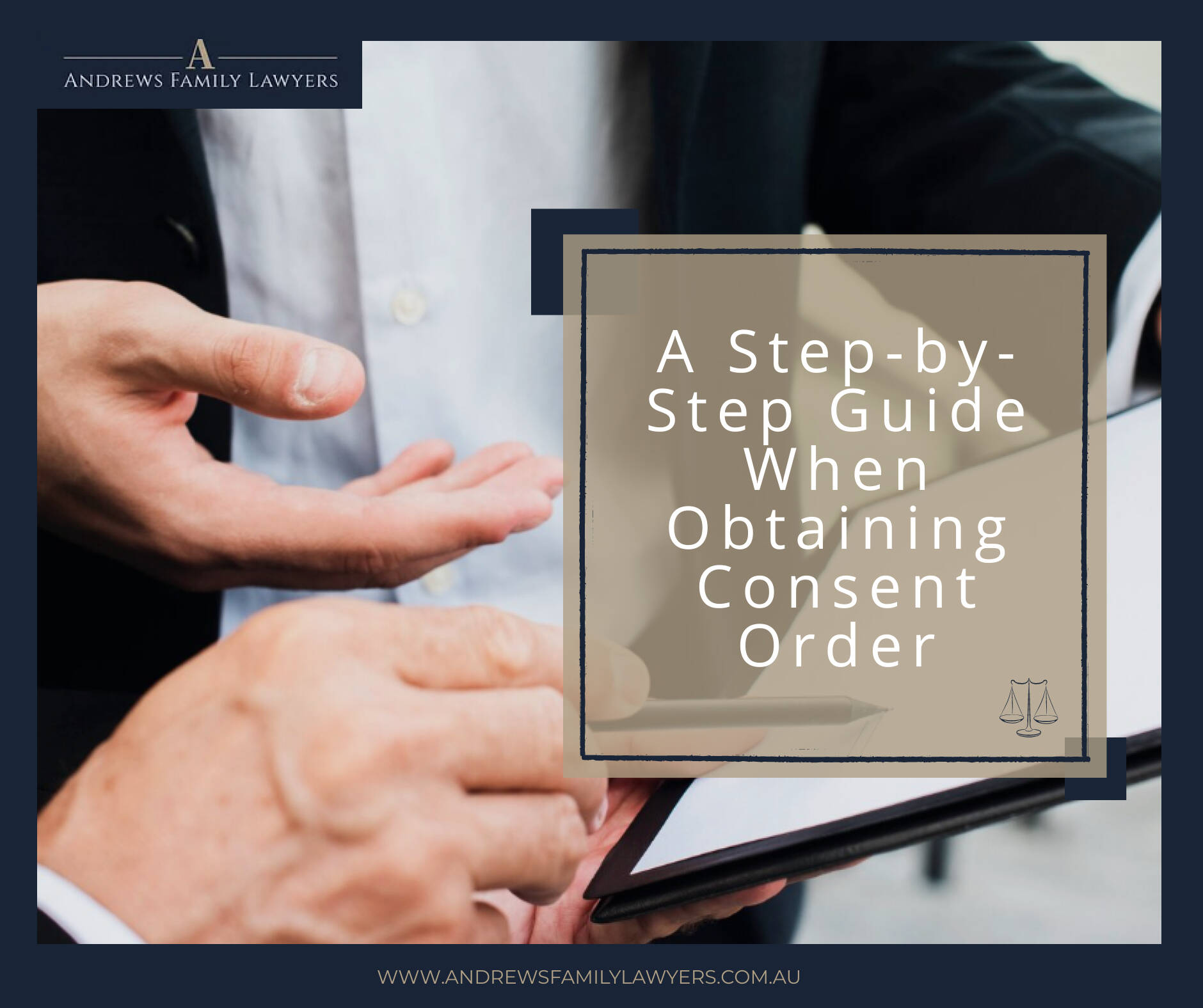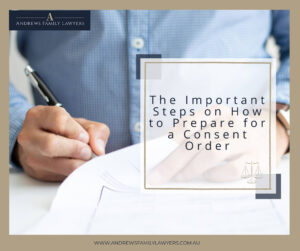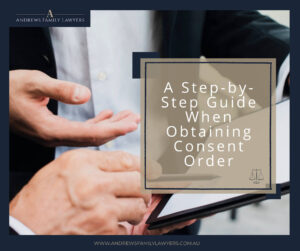When a relationship ends, various legal issues often exist, such as property settlements, parenting arrangements, and divorce. The consent order process is one area of family law that can provide a more amicable resolution for separated couples.
This article will explore in detail what’s involved in obtaining consent order and provide a step-by-step guide to help you better understand this aspect of family law.
What is a consent order?
A consent order is a legally binding agreement between former partners, usually relating to property settlements or parenting plans. Obtaining a consent order can be a beneficial way of resolving disputes without the need for costly and time-consuming court battles. When both parties reach an agreement voluntarily, the decision-making process and the resulting outcome are often viewed as fairer, which can lead to improved post-separation relationships.
The consent order process involves several steps, from reaching an agreement with your former partner to having the consent order approved by the court. Each stage is crucial in ensuring the consent order is legally binding and enforceable.
In this step-by-step guide, we will walk you through the main processes involved in obtaining a consent order, including:
- Reaching an agreement with your former partner
- Drafting the consent order document
- Submitting the consent order application to the court
- Awaiting the court’s approval of the consent order

To know more about consent orders, read this.
4 Simple Steps When Obtaining Consent Order
Step 1: Reaching an Agreement with Your Former Partner
The first step in obtaining a consent order is reaching an agreement with your former partner on the relevant issues that must be resolved. In the case of property settlements, this may involve deciding the division of assets, such as real estate, investments, and personal items. Conversations will likely include custody, visitation schedules, and shared decision-making responsibilities for parenting arrangements.
It is essential to have open and honest communication with your former partner during this stage, as it sets the foundation for the entire consent order process. Discuss your concerns, desires, and boundaries with respect and empathy – remember that reaching an agreement can sometimes require concessions from both parties. In some cases, mediation or collaborative family law methods may help facilitate these discussions.

If you need help with consent orders, and other issues related to family law matters, Contact Andrews Family Lawyers to schedule a FREE consultation.
Step 2: Drafting the Consent Order Document
Once an agreement has been reached with your former partner, it’s time to draft the consent order document. This legal document must include specific details about the arrangements you and your former partner have agreed upon. It should cover the division of assets and liabilities, superannuation splitting, spousal maintenance, and any other relevant property settlement issues. When drafting consent orders relating to parenting arrangements, it is essential to address parenting responsibilities, visitation schedules, and any other pertinent matters.
A template consent order document can be found on the family court’s website, but we strongly recommend seeking legal advice from an experienced family lawyer to ensure accuracy and comprehensiveness. An improperly drafted consent order can lead to complications and challenges in the future, so it is essential to get it right from the beginning.

Step 3: Submitting the Consent Order Application to the Court
After both parties have drafted and reviewed your consent order document, it must be submitted to the court for approval. Each party must sign the consent order documentation, which will be lodged with the applicable court. A filing fee is typically required at this stage.
In addition to the signed consent order, you will also need to submit a financial statement, outlining your financial circumstances. This statement is vital for the court to make an informed decision when assessing the fairness of your agreement and determining whether to approve the consent order.

If you need help with consent orders, and other issues related to family law matters, Contact Andrews Family Lawyers to schedule a FREE consultation.
Step 4: Awaiting the Court’s Approval of the Consent Order
Once your consent order application has been submitted to the court, you’ll need to wait for the court’s decision. The court will review the consent order, ensuring that it is fair and complies with the relevant laws regarding property settlements and parenting arrangements.
If the court approves the consent order, it will become legally binding and enforceable. If the court deems that the consent order is unfair or not in the best interests of any involved children, it may request additional information or suggest amendments to the agreement before granting approval.
It is important to note that the approval process can take several weeks or even months, depending on the court’s workload and the complexity of your case. It is vital to remain patient during this time and keep in close communication with your family lawyer to stay informed of any updates.

How Seeking Legal Advice from an Experienced Family Lawyer Can Help You
While obtaining a consent order may seem straightforward, the complexities of family law and the consequences of an improperly drafted or incomplete consent order cannot be underestimated. It is crucial to seek advice from a knowledgeable family lawyer throughout this process.
An experienced family lawyer will guide you through each step of the consent order process, ensuring your agreement is fair, comprehensive, and enforceable. They can assist with drafting the consent order document, advising on possible outcomes, and answering any questions you may have about your rights and responsibilities. Additionally, a family lawyer can provide representation during mediation or collaborative law proceedings, if necessary.
Remember, the outcome of the consent order process can have a substantial impact on your future and the future of your family. Entrusting your case to an experienced family law firm like Andrews Family Lawyers can ensure that your interests are protected during this challenging time.

If you need help with consent orders, and other issues related to family law matters, Contact Andrews Family Lawyers to schedule a FREE consultation.
Conclusion
Obtaining a consent order is a crucial component of the family law process, allowing separated couples to reach legally binding agreements on property settlements and parenting arrangements without resorting to costly and emotionally taxing court battles. By understanding each step of the consent order process and seeking the expert guidance of an experienced family law firm like Andrews Family Lawyers, you can confidently navigate this legal journey and protect your interests now and in the future.
Related Articles
- What is a Consent Order? A Comprehensive Guide to Legal Agreements in Family Law Matters
- Requirements for a Consent Order: Essential Documents & Information
- Consent Orders vs. Binding Financial Agreements: Deciding the Best Approach for You
- How to Prepare for a Consent Order? (Important Steps for a Smooth Process)




